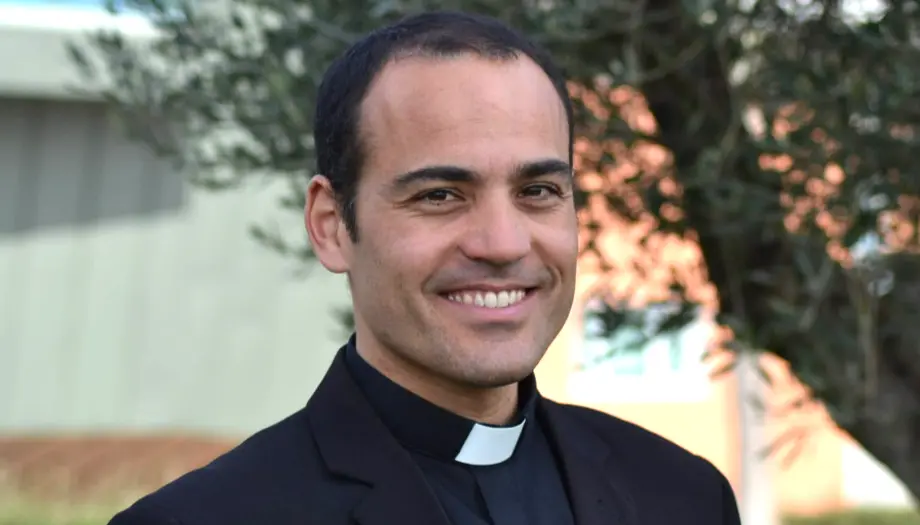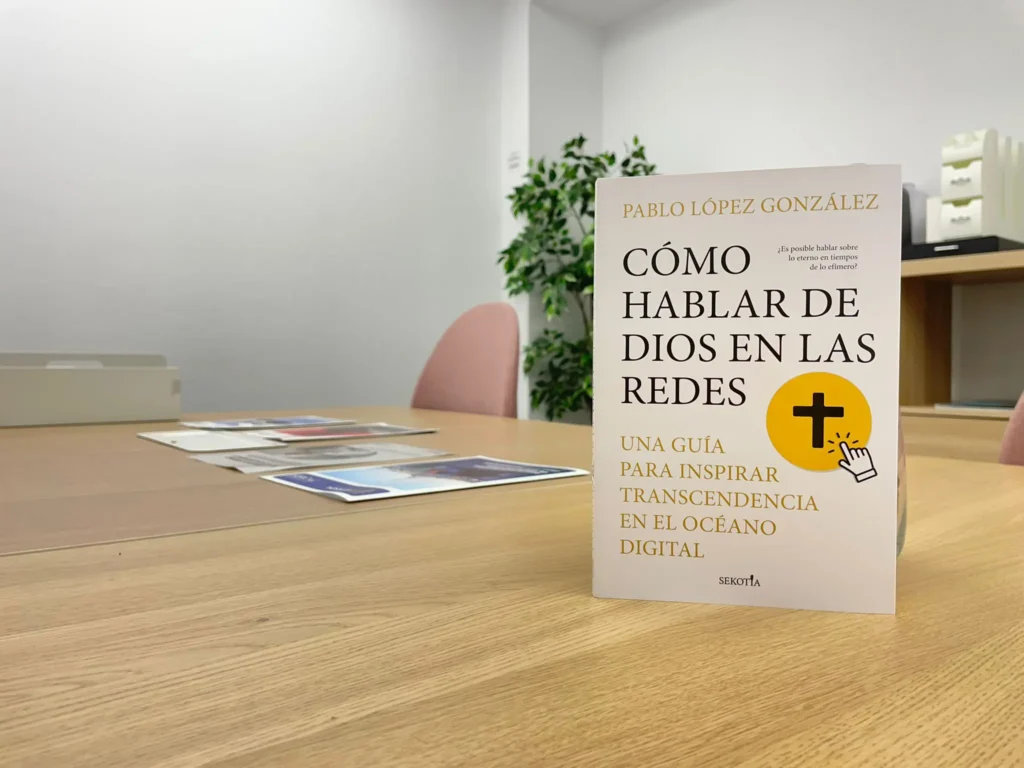
The priest Pablo Lopez has extensive experience in digital platforms such as ".Young Catholics" y "Hallow", followed by hundreds of thousands of young people; in the case of the latter, millions of users. From them, evangelizing on social networks is part of their objectives.
It has just published How to talk about God in the networksa practical guide for communicating the spiritual in the digital sphere. Rather than offering magic recipes, it invites questions, inspires reflection and opens deep dialogues that transcend the transience of social networks. In a world dominated by immediacy and ephemeral content, the challenge of speaking about God on social networks becomes a unique opportunity.
- How did the idea of relating God to a social network like Instagram, which is often associated with superficiality, come about?
It was a proposal from the publishing house and, from the beginning, I loved the project, since I dedicate part of my pastoral work to evangelizing in social networks and I verify its effectiveness on a daily basis. My interest in this field was born in the pandemic, trying to accompany young people in the distance.
- You mention that the book is not a magic recipe, but an invitation to rethink how we communicate the sacred. What common mistakes do those who try to talk about spirituality on social media make?
One mistake is to focus on finding followers and trying to make publications. clickbait, known in Spanish as cibercebo or ciberanzuelo to get you to click. Evangelizing requires speaking from the heart and experience, and there are things that cannot be fit into 'easy' formats.
You have to reach people's hearts and that is what the Holy Spirit does. Anyone who evangelizes on social networks sees the disproportion between their work and the fruits that are produced. I remember a girl who had been treating herself for seven years for severe anorexia, including hospital admissions. She phoned me to tell me that she had been cured by praying with the contents of the channel. She got over it all by praying. Then he joined a religious order. Her parents are non-believers and are amazed at the change.

- Do you talk about these kinds of stories in the book?
Yes, the play is full of shocking anecdotes. For example, a girl in the 2nd year of high school in a town in Extremadura became pregnant and her friends encouraged her to have an abortion. She contacted us when her son was born to thank us: the meditations of the application had encouraged her to be brave and face the consequences. She told us how her son was the greatest gift of her life.
There are people who tell you that thanks to a video they have not committed suicide; another who thanks to a song has asked forgiveness from his mother after a long time; and, of course, many people who return to confession after years or decades.
- In your experience working on platforms such as Catholic Youth and Hallow, what strategies have proven most effective in connecting with young people through digital?
First of all, you have to be consistent and offer a variety of content and formats. At Hallow we do one audio a day, but we also offer songs, tips short articles, commentaries on the liturgical season, interviews or podcasts. In short, it is necessary to do everything so that each one can engage with what he/she likes the most or what best suits his/her circumstances.
There's no need to go through the motions. It is worthwhile to make things short and attractive, not long and dense. Just as homilies cannot be 15 minutes long, it is better to make them 5 minutes long and have a story that people can remember afterwards and make it easier for them to come back.
Well, the same with social networks, it has to be short, otherwise people will move on to another one. reelSo it's essential to start with a groundbreaking beginning. For example, one of our videos starts like this: "Hello, my name is Krishna, I was born and raised in the Hare Krishna community and I have gone from smoking joints constantly to going to Mass every day.
- You talk about the importance of seeding questions rather than simply adding content. What kind of questions do you think are best suited to inspire reflection in the audience?
The key is not so much the type of questions, but rather that when you leave open questions you invite the listener to continue thinking on their own. Also, open-ended questions generate a lot of interaction in the comments or people who write to you privately.
- Finally, as a priest and someone with a sizeable digital audience, how do you balance the use of social media with the time needed for prayer and personal reflection?
Well, thank God, I don't have to spend a lot of time editing videos, I can spend half an hour or so a day: 10 minutes on Instagram, the more 20 (I never go to see anyone's stories, or to see the reels nothing). If I spend more time on it I know I would be wasting my time and I'm much more offline than it seems, I do sports every day and a fun pastoral activity (laughs).
However, I recognize that teamwork is key. I have two collaborators who dedicate more time to it than I do.

In a world of instant connections and ephemeral content, talking about God on social networks can seem a challenge. However, these spaces, where everything seems transitory, can be the new pulpit for the eternal. Social media need not be just a showcase for the superficial; when used well, they can be a bridge to the transcendent and serve to evangelize.
This practical guide explores how to communicate the spiritual in the digital realm in a way that resonates in the hearts of those who, though distracted, are searching for meaning and depth. Pablo Lopez offers strategies for the divine message to not only compete in the speed of the feedbut to make it memorable, relevant and transformative.
It is not about adding content, but about sowing questions, inspiring reflections and opening a dialogue about universal truths that do not expire. Because even if our stories disappear in twenty-four hours, the human yearning for the eternal remains, waiting for answers.
Pablo Lopez, priest since 2016, he has dedicated his ministry to youth and family ministry. Prior to his ordination, he worked as a teacher, specializing in physical education and psycho-pedagogy. After studying theology, he earned a doctorate in Sacred Scripture from the University of Navarra.
Passionate about sports, he is actively working on the digital platform Young Catholicswhich has more than 400,000 followers on social networks. In addition, he collaborates daily with an audio in the application Hallowwhich has surpassed 14 million downloads, and participates in the Instagram account "Se buscan rebeldes", as well as in several podcasts and radio programs.
Bibliography:
Omnessigned by Javier García Herrería.